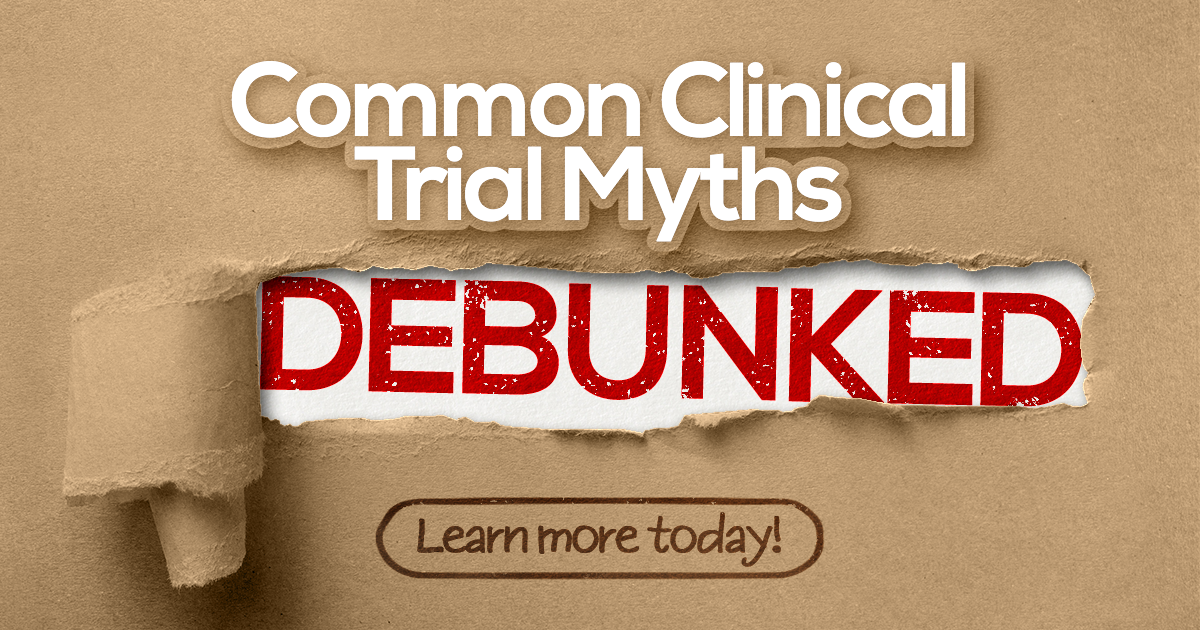It’s true; clinical trials had very humble and not-so-ethical beginnings. From the careless hands of Sir Alexander Fleming that led to the discovery of penicillin to the milkmaid’s hands in the discovery of the smallpox vaccine. Serendipity has played a role in discovering important vaccines and therapies, while something more sinister laid a foundation that some still cling to today. While current ethical procedures and standards govern all clinical trials today, many myths surround clinical research. Let’s take a look into some of the common myths and the real truth behind them.
Myth- “Clinical trials aren’t safe.”
Myth debunked: Every precaution is taken to account for every safety measure possible in the lab before an intervention is given to humans. Only when it is deemed safe enough to move forward can human trials begin. However, the only way to determine how a therapy interacts with the human body is to put it into one. Every time there is a new side effect, every trial participant is made aware. Your participation in a trial is 100% voluntary through the course of the trial.
Myth- “Doctors are going to test medication on me that I am not aware of.”
Myth debunked: Gone are the days of Tuskegee experiments and other horrendous examples. While unethical and immoral, these atrocities paved the way for better clinical practices and ethics to be bound into law so that patients have a complete understanding before agreeing to participate. Each participant must go through the informed consent process that ensures the potential volunteer understands the study’s purpose, what interventions may be used, risks, side effects, etc.
Myth- “I don’t have insurance and can’t participate.”
Myth debunked: Insurance is not a requirement to participate. This is one of the many benefits of participating in research. Those without insurance and regular healthcare see a trial doctor regularly at no charge and receive expert care. Some trials may reimburse you for your time and travel!
Diversity in Clinical Trials

Clinical trials help advance medicine. However, without the volunteers to participate in them, none of these advancements would be possible. Healthy participants are needed, along with those diagnosed with the specified medical condition the trial is representing. All genders, races, ethnicities, age groups, and backgrounds are needed too. Diversity makes clinical trials more effective period.

For more information on clinical trials and how you sign up to participate with Infinite Clinical Trials, visit our website.
Reference:



